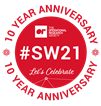OR62 Online
With 700+ participants and 50+ speakers from around the world, we are thrilled to say that this year's online event was a success! Better still, all sessions are now available to watch on YouTube.
Many people from across the OR spectrum have stepped up to offer ways their speciality can help during the COVID-19 pandemic. Those working in simulation are no different.
Join this stream to hear how hyperlocal, agent based simulation, simulation modelling and other simulation projects have been used to support frontline healthcare services and other key decision-makers.
The COVID-19 response has resulted in a radically reorganised health and social care service. Substantial impact on health services resulted from an ICU expansion that effectively managed the first peak, although many non-COVID services had to close as a result. Strategies are needed to support COVID-19 alongside more traditional health services (including their restoration after future COVID-19 spikes) and new or alternative digital services.
This presentation will introduce an Agent Based Simulation that has been developed at Brunel University London – FACS. The hyperlocal nature of this simulation will be discussed, including the automation of model building from OpenStreetMaps. A connected service simulator will also be presented that explores the operational service capacity and backlog in several COVID scenarios. Our hybrid simulation approach has been used by the NHS in London and enables simulation to fully reflect hyperlocal characteristics such as physical geography, hospital configuration and service capacity.
Meet the expert speakers in our Simulation stream. Each talk will last for 15 minutes, followed by a 15 minute Q&A to bring the stream to a close.

David Bell,
Brunel University London
This presentation discusses how simulation modelling can be used to support decision-makers in a pandemic, such as COVID-19, in making the most informed decisions. We identify the challenges resulting from the COVID-19 pandemic and offer a guide to what support is available from the simulation community. This presentation is based on a recently published paper in the Journal of Simulation.

Antuela Tako,
Loughborough University

Christine Currie,
University of Southampton
Over the last six months, the world has shifted. Plans and normal business operations have been thrown in the air and we’ve had to adapt to a very different world. Change and uncertainty have become normal. During this time simulation has become key in helping businesses and healthcare adapt quickly and rapidly to an ever-changing situation. This talk will focus on user stories, detailing how they’ve supported their organizations during COVID-19, and reflect on what this has taught us about how simulation projects must be run to support frontline decision making.

Frances Sneddon,
Simul8
 Brought to you by The ORS and INFORMS Simulation Society
Brought to you by The ORS and INFORMS Simulation Society
SW21 is the flagship showcase of simulation and modelling across industry and academia, providing both a great opportunity to celebrate developments in the field as well as a unique opportunity to collaborate extensively over a three-day period.
The Simulation Special Interest Group (SIG) provides a forum for academics, practitioners and software vendors to discuss the most recent advances in simulation theory and methodologies, to exchange ideas on simulation practice, to promote collaboration among its members, and to engage in impact-related activities.